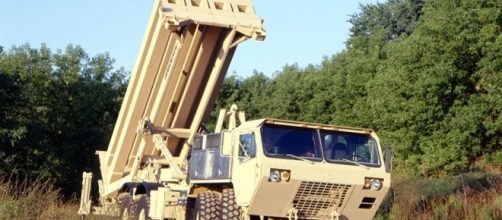Trump will be unveiling the largest single-sale arms deal to King Salman bin Abdulaziz of Saudi Arabia. This will be formally presented to the King upon Trump's visit to Riyadh later this week. It will be Trump's first foreign visit since he came into office.
How will Trump's arms deal change the political landscape of the Middle East?
At the moment, Saudi Arabia has the most advanced navy in the Persian gulf. Its main fleet is composed of the Al-Riyadh class frigates, which are modified versions of the French La Lafayette-class frigate that is more than 15 years old.
Though this is the most modern naval ship the Saudis have in their navy, it is slowly showing its age.
The United States will augment the slowly aging Saudi navy with this new Arms Deal that includes a plethora of weapons. The highlight of the multi-billion dollar arms deal is the inclusion of the Terminal High Altitude Area Defense or THAAD, developed by Lockheed Martin, and the Raytheon Patriot missiles, which have been sold only to a few allies.
Once delivered, the country's regional power will be substantial in terms of affecting the diplomatic landscape of the Middle East. Saudi Arabia is currently at war with rebels in Yemen and is in opposition to the ruling Shia-based government in Iran.
A military boost in the Saudi's favor will tip the balance into Riyadh's favor with the possibility of checking Iran's military development and the potential spread of anti-American extremists in the area.
Is a strong Saudi Arabia beneficial to the United States?
The United States presence in the Middle East is picking up, especially with the approaching offensive against ISIS strongholds in Syria and Iraq.
A strong regional ally is extremely beneficial for the United States as it will provide support and relieve logistical strain. Saudi Arabia can also monitor the progress of Iran and its nuclear program.
Trump is not fond of the Iranian deal which was drafted by the Obama administration. This is why a strong anti-Iranian ally in the Middle East is a great help, and the Saudis fits the requirements.
The ruling government in Riyadh is ideologically opposed to Iran, as they follow two different branches of Islam.
Aside from this, cementing ties with Saudi Arabia will also provide access to oil and natural gases. The Pentagon hasn't yet disclosed the full list of arms the United States is willing to sell to Saudi Arabia, but it is substantial enough to make Saudi Arabia a major regional power in the Middle East.


